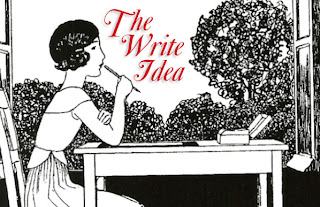I hung out with my writing mentor this afternoon. Mother Goose is the master at getting her point across with memorable language, and unforgettable rhythm. She encouraged me to re-read my favorite book on punctuation. I know that does not rank up there on the list of Good Reads, but I love this book. I am smitten with commas, semi-colons, (and parentheses.) Explanation points? I love them!
Consider this: just twenty six letters, organized with periods and question marks, became To Kill a Mockingbird. Good prose is a matter of interior design. A few things I've learned about writing:
- Use variety. A sentence can be a long, wordy string of words, with commas breaking things up, like this. It can actually be two sentences; just put a semi-colon in the middle. Do you see how punctuation adds visual interest? It's amazing!
- If you want to tell your reader something confidential (like a secret) whisper it in parentheses.
- Long paragraphs are intimidating. Without some visual space we get claustrophobic. Compare reading a magazine to reading the little warning sheet that comes inside the Tylenol bottle. The contrast is a reminder to hit the return key often. Short paragraphs make readers feel welcome.
- Use your dictionary; spell check can only do so much. A precise word conveys the right meaning. Is your sister erratic or erotic? (The computer doesn't pick up the difference.)
- Quote an expert. In Writing With Style, John R. Trimble said, "View your reader as a companionable friend–someone with a warm sense of humor and a love of simple directness. Write like you're actually talking to that friend, but talking with enough leisure to frame your thoughts concisely and interestingly."
- WRITING IN ALL CAPS SOUNDS LIKE YOU'RE YELLING.
- if you adopt a style for creative purposes, be consistent. you want your readers to know it's intentional.
- Unless you're training for a marathon and have to keep going even when you're exhausted remember to put commas in to give your readers a chance to take a breath before they faint.
- Ellipses are used to show that you've left a word out of a quotation. Rudolf Flesch said, "Punctuation . . . is the most important single device for making things easier to read." When . . . are used incorrectly . . . we wonder . . . what we are missing . . .
- Explanation points! They can be overdone! Use them sparingly!
*Homework:
~As a rule of thumb, whenever you've written three longish sentences in a row, make your fourth a short one. And don't fear the super-short sentence. It's arresting. Sometimes just a single word will be plenty long. Experiment! Write a paragraph using sentences of various lengths.
~Read something you wrote a while ago out loud. Can you read each sentence without stumbling or running out of breath? Does it easily communicate what you wanted to say? Did you pick up any unconscious word repeats? Do your sentences sound choppy, or do they have a comfortable rhythm? Edit it just a little and see how you've improved it just using punctuation.
~Pull out a favorite book, and read a few pages. Notice the punctuation, the length of the sentences and paragraphs. Pay attention to the style of what you read. When you thumb through a book or magazine, what catches your eye? If a blog has long paragraphs do you save it for later? Write your next piece using this new perspective.



8 comments:
THIS POST IS TOTALLY...AWESOME!!!!!
grammar and punctuation are my secret love children. i want to claim credit for producing them, but know that would be socially unacceptable.
i heard a story about a woman who was fired from her job for sending an email to her boss in all caps. he completely misread it as confrontational. crazy, huh?
ps just for fun, sometime you should sit in on my special ed class when we learn about punctuation. i have them practice oral reading by applying and ignoring the punctuation. it's hilarious. let's just say they can convey some emotion.
Thanks for the great tips--I forget some of the rules--and for sure I over-use the dash-- and use the ellipses wrong...
Embarrasing, especially because I was an English major (in college - not the military) for awhile. I think I must have slept through all the punctuation classes.
oh I loved this post too.
I linked to your blog from mine. I'm really enjoying all your advice about writing. Thanks!
I love me some commas. But writers like Henry James kill me because they go on and on, go off on tangents, start whole new thoughts, all within the same sentence. It makes me loathe the very sight of the comma. Love your post.
This post is so clever; I love the way you write! (And I'm pretty sloppy with my exclamation points. I use them WAY too much, but they are so fun!)
When I was in high school my sweet English teacher said to me, "you have a bit of a comma problem don't you?" I was not aware of my problem but have been completely terrified of them ever since. It has caused, me to randomly put, them in sentences completely, mistrusting my instincts,.
Also...ellipses! I love them! I know I'm not using them correctly...but I can't stop!
Also, I love this post.
Post a Comment